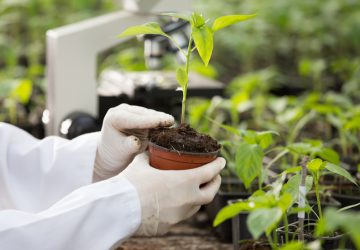From tricky milk labels to the knee-jerk hysteria over genetically modified foods, hardly a day goes by without the usual activist efforts to turn consumers into “all-natural” elitists. But as illustrated by a recent debate over organic agriculture in The Independent, it looks like the organic-only crowd may be running out of straws to grasp.
As an ever-growing list of scientists have said, the ubiquitous claim that organic foods are healthier just doesn’t hold water. Not surprisingly, science writer Dr. Rob Johnston pointed this out last week in his article about the “7 great organic myths.” But Johnston’s piece about why organic foods “are an indulgence the world can’t afford” took the argument one step further. Not only is the all-organic crowd misleading the public about whether their ingredients of choice are more nutritious, but the evidence is mounting that they aren’t better for the environment either:
Today, Soil Association policy director and former chief of Greenpeace UK Peter Melchett published his rebuttal. Responding to charges that his stock-in-trade isn’t better for the environment, Melchett skirts the issue by pointing the proverbial finger:
The development of GM technology, of course, is not sufficient explanation for why organic foods aren’t healthier or better for the environment. Perhaps knowing that this anti-technology argument would only take him so far, Melchett proceeds to play the animal welfare card to distract from his conspicuous lack of evidence:
Notice how Melchett moves directly from the FSA’s statement that there is no difference between organic and non-organic food to an emotional appeal—a classic activist move. We’re reminded of this gem of a Melchett quote from 2007:
Science doesn’t tell us the answers so some of it we have to go on feelings.
Our point exactly.




